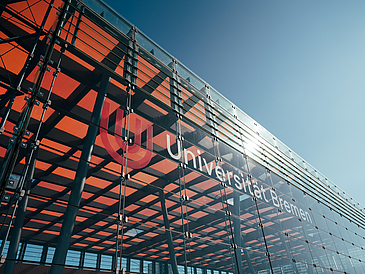There are hardly any points of contact between many people in Germany, they keep to themselves and move in everyday "bubbles" – this is a widespread assessment of the times. The first cohesion report presented today by the Research Institute Social Cohesion examines the truth behind this widespread assumption and the role that the composition of acquaintances plays in social cohesion in Germany.
With the first data collection phase of the long-term RISC cohesion study (Social Cohesion Panel), a very large, representative data set for Germany is now available for the first time. This makes it possible to analyze a broad spectrum of attitudes, experiences, emotions, and practices of people from all social groups, milieus, and regions in the context of their lifestyles and socio-structural backgrounds in a differentiated manner. On this basis, it is also possible for the first time to present empirically validated conclusions on questions of social cohesion in relation to the significance of the composition of the respondents' circles of acquaintances. These findings provide important insights into the spread and functioning of the "bubbles" in everyday life that are often cited in the media.
Prof. Dr. Olaf Groh-Samberg, RISC spokesperson and one of the main authors of the study, explains: "Our report shows that the proverbial 'filter bubbles' also exist in the 'analog world.' People whose social circles of acquaintances tend to be homogeneous in composition also think, feel, and act differently to people who move in more mixed networks. The latter can help to break down communication barriers and hostilities between social groups."
Further key findings of the Cohesion Report are briefly summarized below.
Homogeneous Social Networks: Above All among Green and AfD Supporters
A particularly strong tendency to "keep to oneself" is found above all among Green and AfD sympathizers: 50 percent of potential AfD voters report that their circles of acquaintances are predominantly made up of AfD sympathizers; among potential Green voters, as many as 62 percent have politically homogeneous networks. This tendency towards network segregation is also very pronounced among people of Muslim faith, people with a low level of education, and those living in rural areas, as well as among East Germans, the rich, and the highly educated.
Attitudes towards Democracy: You Have to Be Able to Afford Trust
There are clear differences in attitudes towards democracy depending on education level and income: People with socio-economically privileged networks tend to exhibit high levels of political trust, relatively high levels of satisfaction with democracy and, to a lesser extent, populist attitudes. In contrast, people with less educated or economically disadvantaged acquaintances show less trust in political institutions, a low level of satisfaction with democracy, and a higher level of populist attitudes.
Negative Feelings towards Other Social Groups
"Affective polarization" – the exaggerated emotional identification with one's own group while simultaneously devaluing the other group – is found in Germany primarily between competing political camps (left vs. right and Green vs. AfD). While people who intend to vote for the Green Party have a very positive attitude towards other people who sympathize with the Greens, they strongly reject people who sympathize with the AfD. Potential AfD voters, on the other hand, assess other AfD supporters as very likeable and feel a pronounced aversion to Green supporters. The tendency towards affective polarization is also greater for most social groups with homogeneous networks. This confirms the assumption that contacts and points of contact between social groups can mitigate hostility between them.
Summary: Network Segregation Fosters Polarization
Overall, the Cohesion Report shows that the social acquaintance networks of Germans are by no means completely separate, but are nevertheless homogeneous and segregated to a considerable extent. For the various social characteristics considered in the study, different forms and effects of segregation are evident. A social "decoupling" of social groups with opposing attitudes and values as well as hostile feelings is particularly evident between the Green and AfD supporters' political camps.
About the Research Institute Social Cohesion
The Research Institute Social Cohesion (RISC) is a decentralized and interdisciplinary research institute. It was established in 2020 and is supported by the Federal Ministry of Education and Research (BMBF). With more than 80 research and transfer projects, it explores terms and concepts, sources and threats, consequences and effects, as well as historical, global, and regional contexts and constellations of social cohesion from a wide range of disciplinary perspectives and methodological approaches.
RISC is spread across eleven locations throughout Germany and, thus, reflects the regional diversity of social cohesion in Germany. Besides the University of Bremen, the network includes the Technical University of Berlin, the universities of Bielefeld, Frankfurt, Halle-Wittenberg, Hanover, Constance, and Leipzig, as well as the Sociological Research Institute Göttingen, the Leibniz Institute for Media Research Hamburg, and the Institute for Democracy and Civil Society Jena.
Together with the universities in Frankfurt and Leipzig, the University of Bremen is coordinating the scientific work of the eleven participating university and research institutes. In the Bremen sector of the Research Institute for Social Cohesion, the Center of Labor and Politics (zap), the Institute for Labor and Economy (iaw), the Department of Anthropology and Cultural Research (IfEK) work together.
About the RISC Research Data Centre (RDC-RISC)
The central representative study, the German Social Cohesion Panel (SCP), is conducted at the RISC Research Data Center (RDC-RISC) in cooperation with the German Socio-Economic Panel (SOEP). Since 2021, up to 17,000 people have been surveyed annually in the SCP on various topics relating to social cohesion.In addition to the SCP, the RISC data infrastructure also includes a regional study (Regionalpanel), a qualitative study (Qualipanel), and a social media data observatory (Social Media Obervatory, SMO).
Further Informations:
The full report and an abridged version are available free of charge on the RISC website: fgz-risc.de/zusammenhaltsbericht (currently in German only)
Contact:
Martin Bacher
Research Institute Social Cohesion
Tel.: +49 421 218-58624
E-Mail: martin.bacherprotect me ?!uni-bremenprotect me ?!.de

